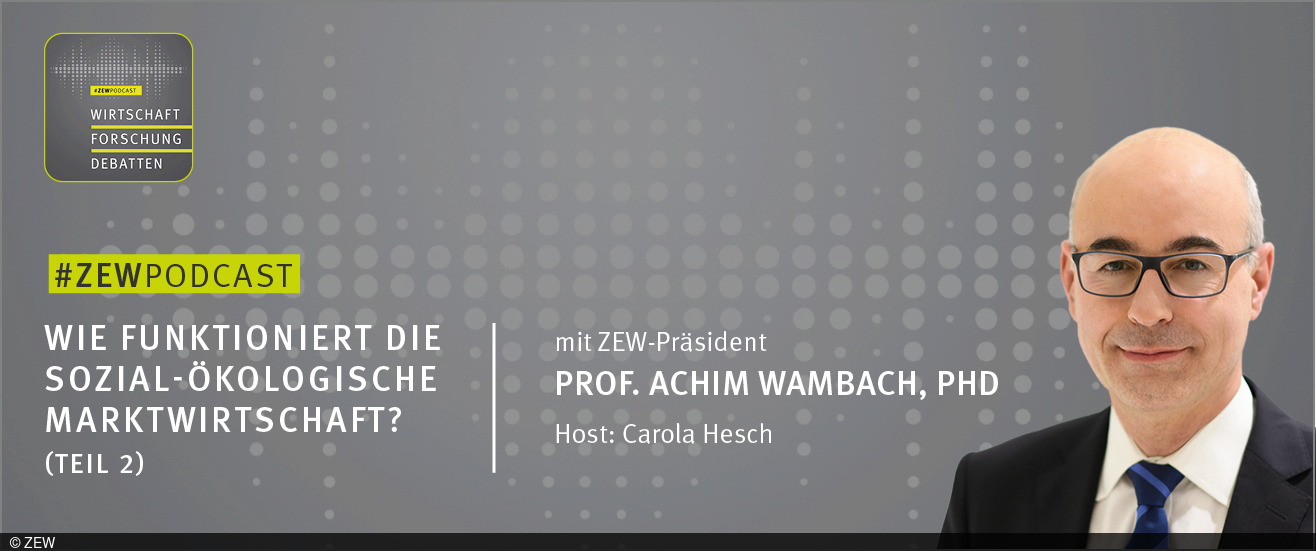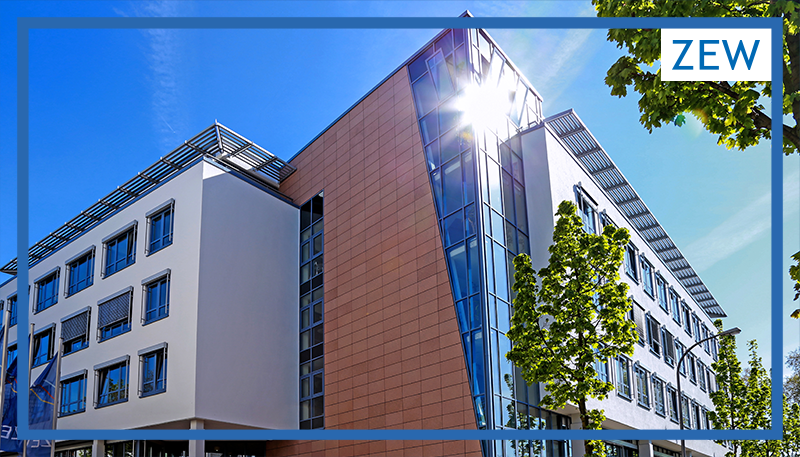#ZEWPodcast: How Does the Socio-Ecological Market Economy Work? (Pt. 1)
#ZEWPodcastZEW President Achim Wambach Presents His New Book in the #ZEWPodcast
We must create the framework conditions for a social-ecological market economy instead of appealing to the morals of consumers, says ZEW President Professor Achim Wambach. In his book “Klima muss sich lohnen” (“Climate Protection Must Be Worthwhile”), he pleads for more economic reason in the current climate debate. In the latest episode of the #ZEWPodcast, the economist shares some details about the book with podcast host Carola Hesch.
“If individual households install solar panels on their roofs, this has no influence on the total CO2 emissions in Europe,” explains ZEW President Achim Wambach. This is because the European Emissions Trading Scheme issues a fixed number of CO2 certificates. Households can reduce their individual CO2 balance by using renewable energies, which makes economic sense in view of the high prices for fossil energy. Still, individual private investments do not contribute to reducing emissions at EU level. Unused certificates will simply be used for other purposes.
Households and companies react to price signals
“Is it better to buy organic tomatoes from Spain or tomatoes grown in your own region? A complex question that most households cannot answer themselves,” says Wambach. This is precisely why it is important to use price signals to promote environmentally friendly purchasing decisions. “Climate policy must establish a system in which the environmental impact is reflected in the price. That is the key point in an ecological market economy.” Accordingly, pollution and emissions would translate into higher production costs.
Achim Wambach’s book will be published on 15 August by Verlag Herder. Part 2 of the podcast will be available on 6 September.


